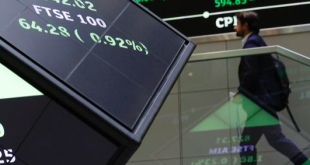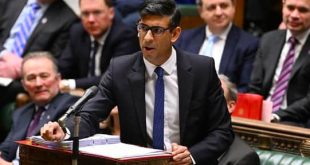The industry sees progress on Brazil launching its long-awaited sports betting regime in 2022. Yet observing policy developments, Regulus Partners warns that lawmakers will regret adopting a UK model to tax operators of a new marketplace.
The Brazilian government has announced that it will ‘follow the UK model’ of online betting tax, applying a 15% GGR duty, explicitly to ensure that channelling from black markets into the domestic licensing regime would be effective. On the face of it, a 15% GGR tax for online sports betting seems sensible – it works in the UK and similar tax rates are working, sort of, in the USA.
However, a UK-inspired 15% GGR tax is not the whole story. Perhaps the Brazilian government sought advice from the former UK Culture and Health Secretary Matt Hancock and the former Chancellor of the Exchequer Kwasi Kwarteng, who were both recently caught pimping their consultancy credentials despite an absence of any discernible talent or insight, because Brazil is heading into a bullshit-fueled and self-defeating policy trap that will achieve the opposite of what is intended – seemingly a specialism of both former British ministers.
The proposed Brazilian sports betting taxation model, as it currently stands, is deeply flawed on three structural levels, and could all but destroy the current market, in our view.
First, and least seriously, a low rate of GGR tax is not a primary driver of channelling, despite what the industry likes to lobby. When Denmark increased taxes from 20% to 28% in 2021, industry expectations of a reduction in channelling were not met. Similarly, there is no correlation between significantly varied GGR tax rates for online sports betting in the USA and revenue per capita (indeed, the correlation is dangerously positive thanks to New York, which taxes online sports betting at 51% GGR and has the highest per capita revenue of any major state). Finally, the reduction in online gambling taxes from 25% to 20% GGR in Spain in 2018 coincided with a slowdown in growth, not an acceleration.
There is a simple reason for this: other than the potentially distortive taxation of bonuses, GGR taxes do not affect consumer prices and so do not impact demand (operators who threaten to rip off customers by increasing prices in response to higher GGR taxes are either mendacious, economically illiterate, since they will simply concede a price advantage to competitors, or are effectively proposing a cartel).
What a higher rate of GGR tax actually does is reduce the amount of money operators have available spend on marketing (assuming gullible investors have stopped shovelling money into flawerd business models); and given how much of this marketing expenditure is self-defeating from an efficiency and policy standpoint, higher taxes are not necessarily a bad thing. It is an unrecognised but empirical truism that very little gambling marketing actually grows the segment or positively influences product awareness. However, in a Brazilian context, a 15% GGR tax is not just a flawed concept in terms of its planned policy aims, it is a risky one for fiscal sustainability.
The typical range of VAT/GST that applies in Brazil is 17-25%, which means that once the current c. US$1.6bn online sports betting market is channelled (US$1.3bn revenue; c. 20% bonuses), generating a relatively meagre US$240m in taxes; all future revenue is tax neutral at best since sports betting growth must come from other parts of the (taxed) consumer economy. However, a basic misunderstanding of channelling and inbuilt fiscal inefficiency are far from the most serious flaws in Brazil’s sports betting policy direction of travel, in our view.
A bigger problem is that the 30% winnings tax which applies to lottery appears still to be applied to sports betting (see previous WPs). Currently, lottery prizes below BRL2,640 (c. US$500) are exempt, which appears to be a meaningful exemption in a relatively emerging and relatively mass market if this exemption is carried over to sportsbetting.
However, a 30% winnings tax on higher prize levels presents a serious channelling trap which makes the rate of GGR tax set practically irrelevant. While c. 90% of Brazilian sports betting customers are unlikely ever to trigger this lottery level, the 10% that do are likely to represent well over 70% of revenue, in our view. For example, we believe that the US$1.5bn GGR market is supported by c. 9m active sports betting customers:
- 90% or c. 8m = 20% of revenue, or US$40 of net expenditure per customer; at 10% GM = US$400 of stakes and US$360 of winnings per anum – way below the threshold in aggregate, let alone per bet (these customers are also typically not especially price sensitive and so they will take distortive taxes)
- 10% or c. 1m = 80% of revenue, or US$1,300 of net expenditure per customer; at 8% GM (more singles) = US$16,600 of stakes and US$15,300 of winnings per annum – a material proportion of these individual bets are likely to be worth US$500 or more in winnings (big singles bets and multi-leg accumulators)
In other words, the winnings tax targets the most valuable, most savvy, most price sensitive, and most mobile customers. Even with a US$500 threshold for a winnings tax, up to 80% of revenue might not channel and the black market is likely to thrive. By keeping the winnings tax even with a US$500 threshold, the explicit policy purpose 15% GGR tax would be comprehensively defeated.
The third structural flaw is likely to be fatal to the entire project, in our view, especially when combined with the winnings tax. The biggest and possibly most intractable problem is that the Brazilian government is far more willing to regulate sports betting than igaming. Last week, the government seemed to confirm that a Brazilian sports betting licence would preclude offering online gaming, which would be revisited later (possibly much later).
We have been flagging this risk for some time as a common sense outcome of the political forces at work, but this is the first time that a government official has spoken about it. By blocking online gaming, c. 50% of the existing market by product is turned black. However, this is far worse than ‘just’ halving the current addressable market when combined with the 30% winnings tax, since it gives an additional powerful reason for existing customers to use black market alternatives, since betting and gaming or solus gaming customers are typically far more valuable per capita than solus betting customers. The current proposed fiscal package takes aim at c. 80% of the current online market and makes it dysfunctional.
The Brazilian sports betting package will undoubtedly open up a significant landbased – omnichannel opportunity, which we believe could be worth c. US$1bn in additional revenue and maybe more. However, this new market is likely to be soaked up by a few savvy and well positioned local players and might attract the fiscal-regulatory interests of Brazil’s semi-autonomous and financially stretched provinces: the need for a physical network opens up an obvious opportunity to add local taxes.
However, of the c. US$2.3bn 2023 revenue (not GGR) Brazilian online betting and gaming market that we are expecting for 2023, we would expect less than 30%, or US$650m to survive in a domestically regulated form if taxed and regulated as proposed. An industry of this size would represent a GGR of c. US$2bn and so raise c. US$300m in GGR taxes – a long way behind the US$2-3bn that the Brazilian government rather optimistically expects (we would expect most winnings tax to be evaded in the black market).
Indeed, if the upper-end expected US$3bn were made up of 60% GGR and 40% winnings tax (implying an 11% blended winnings tax with a US$500 threshold), this would imply a market GGR of US$12bn or US$56 per capita – more than New York currently achieves… The difference between a tax yield of US$3bn and US$300m is more than just the difference between success and failure – it would represent a total political disaster for gambling and everyone who supported domestic regulation.
Ironically but perhaps inevitably, the industry is then likely to get the blame for the weak tax yields and aggressive marketing for share that the proposed regime will almost inevitably usher in next year, setting back the likelihood of positive reform on winnings taxes and igaming potentially indefinitely. Brazil might be copying the UK, but in ministerial incompetence, not effective policy, in our view. Yet again, several years of intensive but naïve and simplistic industry lobbying has achieved the precise opposite of what was intended in what is rapidly developing into another avoidable but potentially catastrophic policy mess.
Featured article edited by SBC from ‘Winning Post’ Sunday 16 April 2023 (click on the below logo to access the full unedited analysis of Winning Post).










